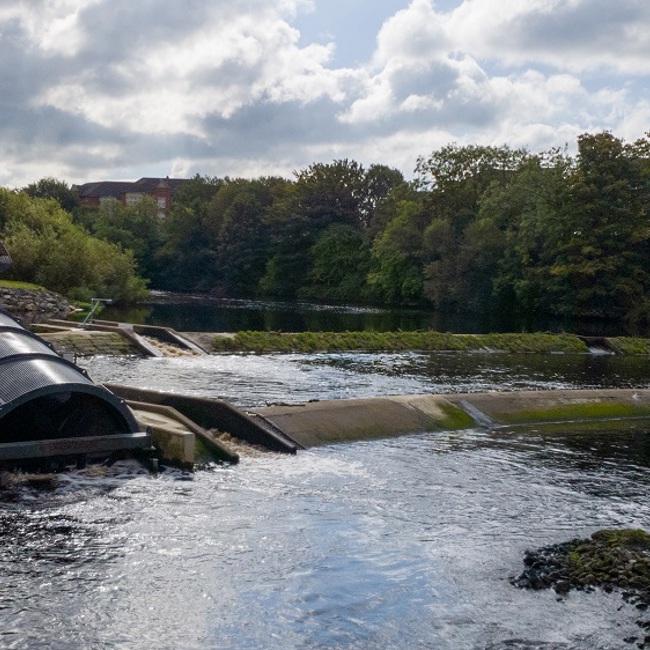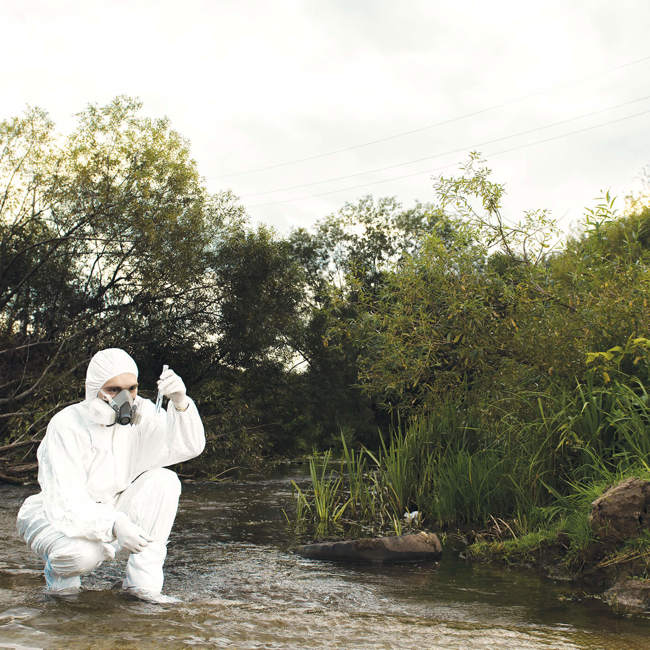COP28 and UWS
Committed to tackling the United Nations Sustainable Development Goals.
Our ambition is to become a stand-out university committed to tackling the United Nations Sustainable Development Goals, as well as a leader in climate change and resilience through research and enterprise activity.

Through our innovative work in research and in learning and teaching, UWS is making an impact nationally and internationally:

We're committed to finding solutions to many of the crises that humanity faces, through innovative research and effective partnership working with business, industry and the public and voluntary sectors around the world. Right here, right now, we are making a contribution to tackling global issues, working to protect our fragile environment, and the communities that live within it.
We're committed to being a good neighbour, passionate about our communities and the environment. We'll continually strive to improve our social and environmental performance. Our aim is to ensure that our activities positively contribute to the sustainable social development of the communities we serve.
The University’s work with industry partner FIDO Tech on a pioneering AI technology, which is already helping to save billions of litres of water globally, is being showcased at the COP28 Fringe Event Hub at Heriot Watt University, Dubai Campus [30th November – 12th December 2023]
Pioneering artificial intelligence developed through a partnership between FIDO Tech and University of the West of Scotland (UWS) is saving billions of litres of water being lost from pipeline networks, globally – tackling climate change and directly addressing the United Nations Sustainable Development Goals.
Below are some examples of the innovative work that UWS is undertaking to help positively contribute to the sustainable and responsible societal developments for the communities we serve.
Pioneering artificial intelligence developed through a partnership between FIDO Tech and University of the West of Scotland (UWS) is saving billions of litres of water being lost from pipeline networks, globally – tackling climate change and directly addressing the United Nations Sustainable Development Goals.
The technology – FIDO AI – created as part of University of the West of Scotland’s award-winning Knowledge Transfer Partnership (KTP) programme, is being successfully deployed globally. One example of the impact already achieved is the AI technology helping to secure the water supply – and the lifting of severe water restrictions for the first time in 20 years – on the remote Mer Island, in the Torres Straits, off the coast of Queensland, Australia.
UNESCO called reducing water leaks a low or no regrets response to climate change because it ties into adaptation and mitigation. Around 30% of the world’s treated drinking water is lost from pipelines before it ever reaches taps.
Traditionally, water leaks are detected by an obvious breach, such as localised flooding or existing survey techniques. After identification, leaks require a manual excavation, which can often take several attempts to find the exact location of the leak. Generally, 46% of digs are dry, meaning there was a failure to pinpoint the leak, resulting in continued water loss from pipelines.
The FIDO AI system uses small sensors which attach magnetically to pipes and record simultaneous acoustic samples. The innovative cloud correlation technology, developed by UWS, receives sensor readings via a smart phone app, and has been designed to source the exact location of water leaks with the objective of eliminating unsuccessful "dry" digs and the subsequent continued water loss as a result of these.
The technology is having clear and tangible global impact, directly feeding into the United Nations Sustainable Development Goals, specifically addressing:
ACS Clothing - a sustainable fashion B-corporation - has sponsored UWS PhD research, and further engagement with UWS is planned. The partnership has resulted in patented eco-friendly technology which could significantly reduce the volume of landfill waste from clothing, offering significant environmental benefits.
ACS Clothing embed automation and physical chemistry expertise to underpin the design, development and implementation of a novel in-line garment sanitisation process, addressing existing batch process constraints and unlocking capacity for accelerated growth, supporting a fashion rental model, against a backdrop of environmentally damaging "fast fashion" practices.
This work contributes towards the following SDGs:
Formed in 2011-12 , this innovative partnership brings together the academic expertise from UWS to contribute to the University’s longstanding commitment to issues of social inclusion, social justice, and supporting impactful research that makes a real difference to people’s lives.
Drawing on the local knowledge and capacities of a wide range of civil society organisations, the partnership has conducted research and informed policy debates, with the overarching objective to work together for a more equitable and sustainable Scotland. UWS researchers from across the social sciences discipline contribute to the work of the partnership.
The partnership has recently conducted two groundbreaking pieces of research; the first explores the experiences and issues impacting young carers in Scotland; the second investigates the COVID-19 crisis and food insecurity.
This work contributes towards the following SDGs:
Academics from UWS’s School of Health and Life Sciences are leading on research on menstrual health and its impact on exercise for health and performance.
Research studies have explored trained and elite athlete’s experiences of the menstrual cycle and the impact on training and competition across multiple sports, highlighting a need for educational initiatives to foster positive and constructive discussions around the menstrual cycle.
With menstruation frequently cited as a barrier to adolescent girls’ involvement in physical education (PE) and sport, specific research is also being undertaken to increase education and awareness that focuses specifically on supporting young menstruating individuals to participate in physical activity by gaining insight into teachers’ experiences in delivering menstrual health education.
UWS academics are actively conducting several research projects to further expand on this topic, encompassing various aspects such as gaining a deeper understanding of adolescent menstrual experiences in sport, as well as exploring coaches’ awareness of menstrual health and their experience of working with menstruating athletes.
This work contributes towards the following SDGs:
The Alzheimer Scotland Centre for Policy and Practice is an innovative partnership between UWS and Alzheimer Scotland, providing a high-quality environment for applied research, education and social enterprise.
The Centre works collaboratively with people living with dementia and their carers, as well as scientific and practice communities, to advance evidence informed dementia policy and practice.
Through the Centre, UWS is the official provider of Scotland’s National Dementia Champions programme - an award-winning initiative which has prepared 1,000 Dementia Champions. Dementia Champions are health and social care professionals who have completed an intensive programme that teaches them to see, hear and feel the experiences of people living with dementia by working closely with them and their carers.
Through another of its award-winning initiatives ('Class in a Bag'), the Centre has also helped thousands of school children across Scotland to become more dementia aware.
The Centre has been informing dementia policy and practice across the world for over a decade.
This work contributes towards the following SDGs:
UWS’s partnership with a Scottish national charity (Kibble) provides direct support to our local communities and contributes to the University’s longstanding commitment to issues of supporting impactful research that makes a real difference to people’s lives.
Through the partnership, an innovative research project was conceived which involved embracing an artificial intelligence (AI) tool to create an advanced remote health monitoring and behavioural analysis system.
The aim of the project was to further enhance care provision for young people by remotely and non-invasively monitoring health and behaviour during periods of crisis.
The project has developed cutting edge, disruptive remote monitoring and behavioural analysis technology, which uses machine learning techniques to observe and detect physiological changes - such as decreased heart rate and breath - in a non-invasive way.
The technology can quickly alert staff to harmful behavioural changes which may require further intervention and support, enabling Kibble to meet their goal of constantly upholding the safety of young people, while giving them the personal space they need to reflect, heal and move forward.
This work contributes towards the following SDGs:
UWS academics are conducting research on disability sport events and social change.
The project (Project Echo) involves an examination of policy, planning, development and implementation of multi-national disability sporting events, influencing strategies around parasport opportunities and accessibility, based on quantitative and qualitative research.
Project Echo also considers the broader experience of large scale sporting events, exploring the positive long-term impacts on sport participation, aiming to better understand the experiences of disabled people participating in sport and physical activity.
This work contributes towards the following SDGs: